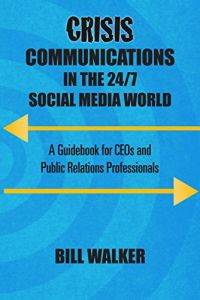Rejoignez getAbstract pour lire le résumé !

Rejoignez getAbstract pour lire le résumé !
Bill Walker
Crisis Communications in the 24/7 Social Media World
A Guidebook for CEOs and Public Relations Professionals
Paramount Market Publishing, 2014
Aperçu
Read Twitter to find out about today’s crisis. Read this book to learn effective ways to handle it.
Recommendation
Every day brings fresh stories of another company or celebrity in crisis. From massive oil spills to Twitter gaffes, mishandled crises can ring the death knell for a brand or individual in today’s hyperconnected world. Three decades in the trenches and on the front lines have given crisis management expert Bill Walker a clear perspective on the ins and outs of crisis communications. He emphasizes truth and transparency, putting the public’s interests ahead of self-preservation and, if possible, surpassing prevailing negative preconceptions. His account proves engagingly anecdotal, if repetitive at times. getAbstract recommends that executives and public relations professionals use this book as a safety net while walking the crisis management tightrope.
Summary
About the Author
Bill Walker spent two decades at The Toronto Star as a journalist and 10 years as a crisis communications specialist. He heads the Midtown PR consultancy.
























Comment on this summary